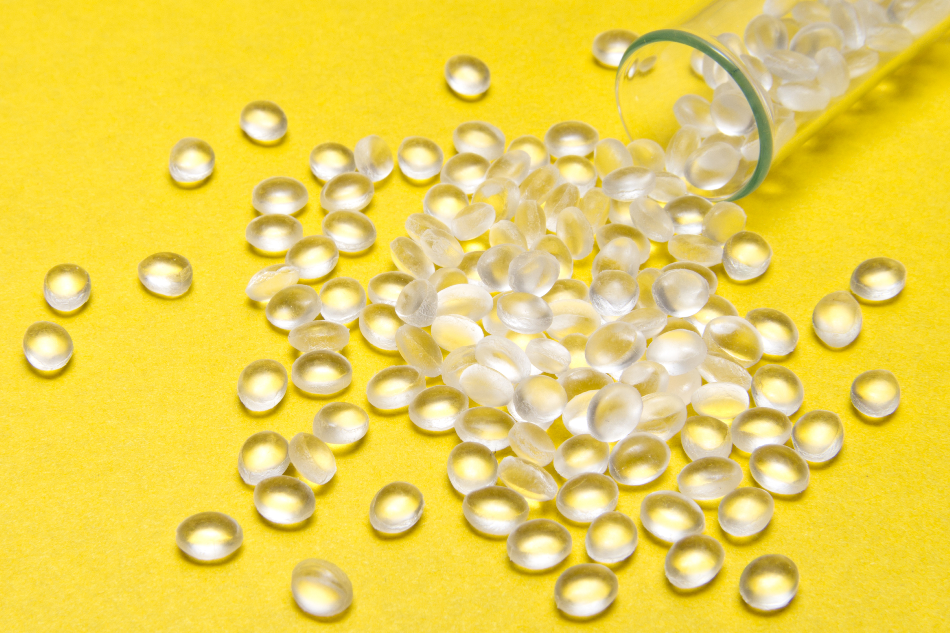
StanislauV / Shutterstock
A polymer is a substance with a molecular structure; they are almost entirely made from a large number of alike substances and are bound together. However, intelligent polymers, also known as smart polymers, are bodies that react to small physical or chemical stimuli surrounding them, thus causing them to transform.
These specific polymers come in multiple forms - they can exist on surfaces, in solutions, or as a source of mediation. Commonly, intelligent polymers are merged with biomolecules in order to create a substantial family of polymers that answer intelligently to physical, biological, or chemical stimuli.
The name for this polymer, whether you call it an intelligent or smart polymer, comes from its innate ability to change its chemical or physical property when faced with substantial changes in its surroundings. In the last twelve years or so, intelligent polymers have been a focus on drug delivery. Since these clever bodies are responsive to stimuli, they are able to respond quickly to any environmental alterations.
Any change in electrical fields, pH levels, temperatures, wavelengths, and light intensity can also influence the intelligent polymers’ color, shape or other physical and chemical properties. Intelligent polymers are so sensitive to their environment that they are capable of re-rendering their properties with the slightest change in their surroundings.
Polymer systems often react to temperature, which results in a lower consolute temperature. This means that there is a lower critical temperature in which polymers can become miscible.
Intelligent Polymers Use and Application
Reversibility is one of the biggest advantages of experimenting with intelligent polymers. Since these are clever substances, no matter how much they change in temperature, pH level, or any other influential altercation, they are able to revert back to their original state.
Intelligent polymers have proved to be useful in pharmaceuticals and biomedicine. It is difficult to create drugs that can sustain the extreme acidity of the human stomach; the delivery of drugs to specific points in the body without deteriorating from stomach acid is nearly impossible. In light of this, many researchers and scientists have sought methods with intelligent polymers as a way to mediate and control the release of drugs until the desired area is reached.
Although drug delivery is a primary focus for intelligent polymers, they have other science-related applications. These polymers and their properties also work for bioseparations, which is the separation of a biochemical reaction and does not destroy the organisms involved. As intelligent polymers aid successful bioseparation, there is the benefit of purifying substances, while also eliminating higher costs and longer processes to achieve the same end result.
Intelligent polymers can also govern biological reactions through recombinant DNA proteins, which are the molecules made from genetic recombination. Recombinant DNA combines genetic material from several origins and creates unfamiliar sequences that cannot be created otherwise. Smart polymers are built into the recombinant proteins as a type of merging or binding site. This particular application of intelligent polymers is used to mediate ligand and the changes or stability in cell binding.
Conclusion
Despite the variety of applications intelligent polymers already have, researchers have higher hopes for the future of these clever substances. Intelligent polymers are more and more likely to make advancements in the field of medicine. There is the potential invention of a toilet that uses these polymers to detect health issues in urine, or even in eco-friendly fertilizing methods, where smart polymers identify the necessary functions of water use and ultimately mitigate waste.
Although intelligent polymers are not perfect or completely risk-free, the biomedical field still wishes to see what can be positively achieved with their use and application. The main concerns surrounding intelligent polymers is the possible incompatibility with other substances and exposing the human body to artificial solutions.
Sources
Disclaimer: The views expressed here are those of the author expressed in their private capacity and do not necessarily represent the views of AZoM.com Limited T/A AZoNetwork the owner and operator of this website. This disclaimer forms part of the Terms and conditions of use of this website.